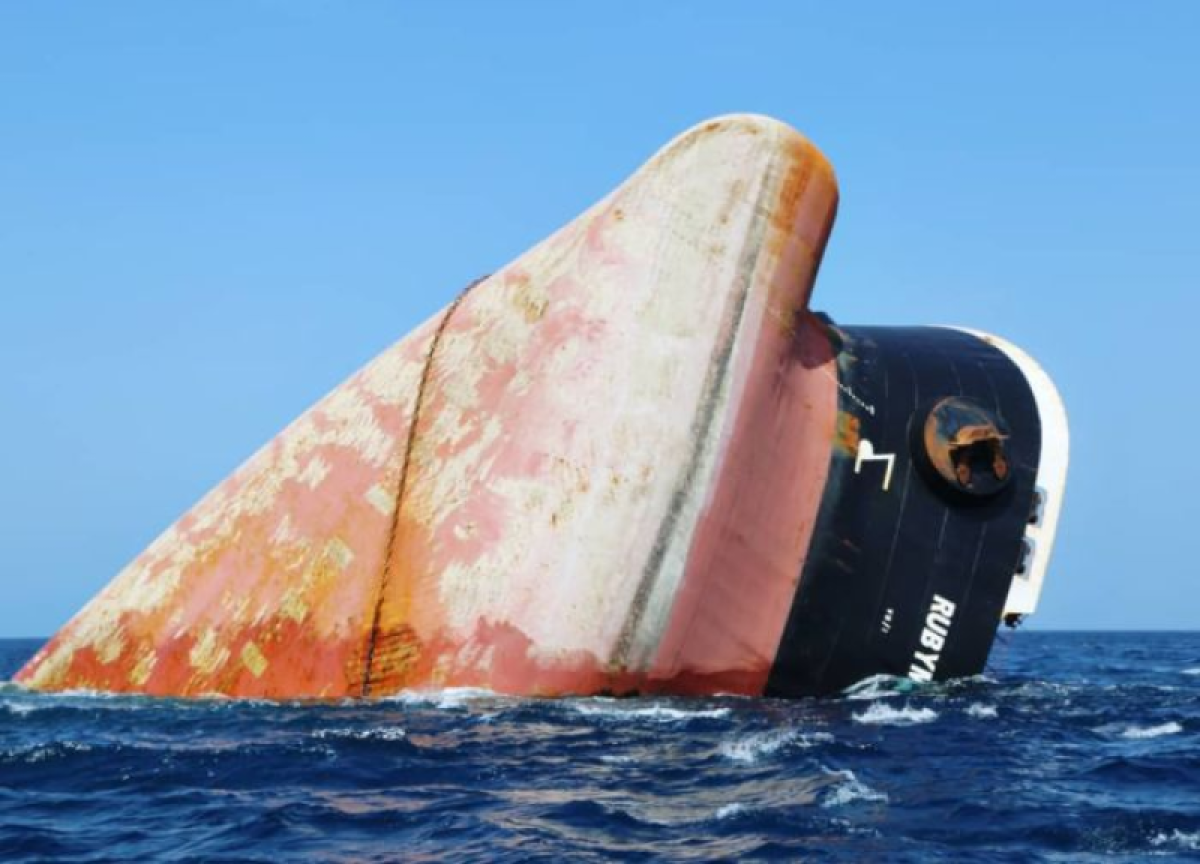"Humanitarian Press": The United Nations is not serious in dealing with the "Rubimar" disaster.


United Nations experts warned of the consequences of the sinking of the ship "Rubimar" in the Red Sea last March on fishing communities, stressing to those working in them the need to temporarily suspend their activities around ship areas if algae blooms are noticed.
The warning contained in the report of the United Nations team, obtained by the Humanitarian Journalism Foundation (HJF), made five recommendations, which included conducting an immediate undersea assessment of the ship “Rubimar” using a remotely operated underwater vehicle, in addition to monitoring the ship and the area. surrounding and collect water samples for analysis.
He also recommended developing and implementing a strong preparedness plan for any incident similar to the sunken ship "Rubimar", with the support of all countries overlooking the Red Sea and regional and international partners, and supporting Yemeni government efforts in the areas likely to be affected if an oil leak is observed that may reach the shore.
p>Earlier, the United Nations in Yemen, for a period of two weeks, carried out the task of providing technical support to the Crisis Management Cell headed by the Minister of Water and Environment to address the sinking of the ship “Rubimar”, at the request of the internationally recognized Yemeni government.
The international team worked through the Office of the United Nations Resident Coordinator, the World Maritime Organization, along with the United Nations Environment Programme, the United Nations Office for the Coordination of Humanitarian Affairs and its partners in the European Commission by supporting the efforts of the Department of Humanitarian Relief and Emergency Mutual Assistance in the Red Sea and Gulf. Aden.
The technical support team presented a final report on ship monitoring, including satellite images, simulations of potential cargo and a potential oil spill to determine its location, its effects and recommended immediate actions for response, in addition to planning and preparedness in the event of an emergency.
The UN team's initial assessment noted that while the shipment of fertilizer and oil represented a threat to the environment, slow release of both would lead to decomposition of the cargo and an oil spill, along with the major indirect fertilizer poisoning that would typically occur with the development of algal blooms that could Reduces the availability of oxygen for marine life.
The Humanitarian Journalism Foundation (HJF) believes that the recommendations of the technical report of the United Nations team and the United Nations plan to deal with the “Rubimmar” disaster are disappointing, and tinged with complicity and a lack of seriousness on the part of United Nations bodies and agencies and the international community to help Yemen get rid of the environmental disaster that threatens it.
The Foundation confirms that the disaster will not be eliminated without urgent international intervention. Since the Yemeni government itself admits its inability to confront this type of dangerous marine disaster, therefore, the recommendations of the UN team to the Yemeni government in this way is a form of madness.
The Humanitarian Journalism Foundation (HJF) renews its call to the United Nations and the international community to quickly and decisively intervene to save Yemen from the crisis of the sinking ship “Rubimar,” which threatens the lives of millions of Yemenis, which may inevitably push the country to the brink of abyss.
The “Humanitarian Journalism” works, as part of one of its activities, in the field of climate, environment and sustainability in Yemen. It is an independent, non-governmental civil society organization, specializing in humanizing and developing media. It was established in 2019 with license No. (385), in the city of Aden. Southern.